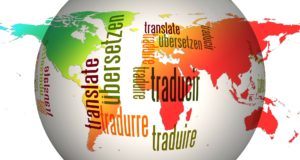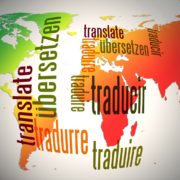New challenges: translation services in a post-Brexit economy

When we first started thinking about this article, the UK’s exit from the EU was certain. Article 50 had been triggered and there would be an incumbent Conservative government to steer the negotiations until 2020. Now of course we have a general election to think about. There are also rumblings that, should a new government seek to withdraw our notice, we may be accepted back into the EU fold.
However, let us return to thinking about the course we’re currently on. Britain’s notice to leave remains in place and, come 2019, we will have left the EU whether there’s a deal in place or not. We will need to form a new economic relationship with the EU, and our trading partners further afield will take on additional significance.
Against that backdrop, our ability to communicate effectively with dealmakers overseas will be crucial in ensuring our economic survival. How will Britain’s approach to language influence its future?
Language skills
We’ve always needed to speak to people in other countries, whether for business or diplomatic reasons. Historically, multilingual traders have been able to extend their reach and broker the most favourable deals.
As a nation, our language skills are now falling behind the rest of the world’s. Speak to a cross-section of business owners and you will find starkly opposing views: some view language and translation skills as a key resource for continued growth, others simply take the view that ‘everyone speaks English’.
There’s a government statistic, which estimates a loss of around 3.5% of the UK’s GDP every year due to a lack of language skills. Whether you accept that figure or not, the simple fact is that the UK needs people with professional language skills to achieve sales in new markets. This doesn’t just mean speaking another person’s language. Understanding and respecting their culture is also a key consideration – but that’s a discussion for another time. We’re promised funding to close the technical skills gap but investment is also needed to ensure we have the language skills to match. We can’t merely rely on English speaking markets any longer.
What about the Commonwealth?
There seems to be a prevailing view that we can simply trade with the Commonwealth once we’re outside the EU. However, this isn’t necessarily the case. Where we might once have relied on strong markets within the Commonwealth, the growth areas are now to be found elsewhere. China is the most prominent example but there are strong emerging markets across South East Asia and South America.
Realistically, our trading partners in Europe will still have a role to play. Their geographical closeness aside, we have existing relationships to build on.
Building new relationships
Our multicultural society is likely to be a big plus in a post-Brexit economy. We have people settled here who speak a wide variety of languages but who also have an awareness of other cultures. Investment will be needed to build on those skills for the future. However, we have the ability to begin negotiations using a combination of shared language and cultural sensitivity.
One can only hope that the politicians assembling a team to sit around the Brexit negotiating table are also mindful of this.
Blog post based on text provided by Kirsty France




